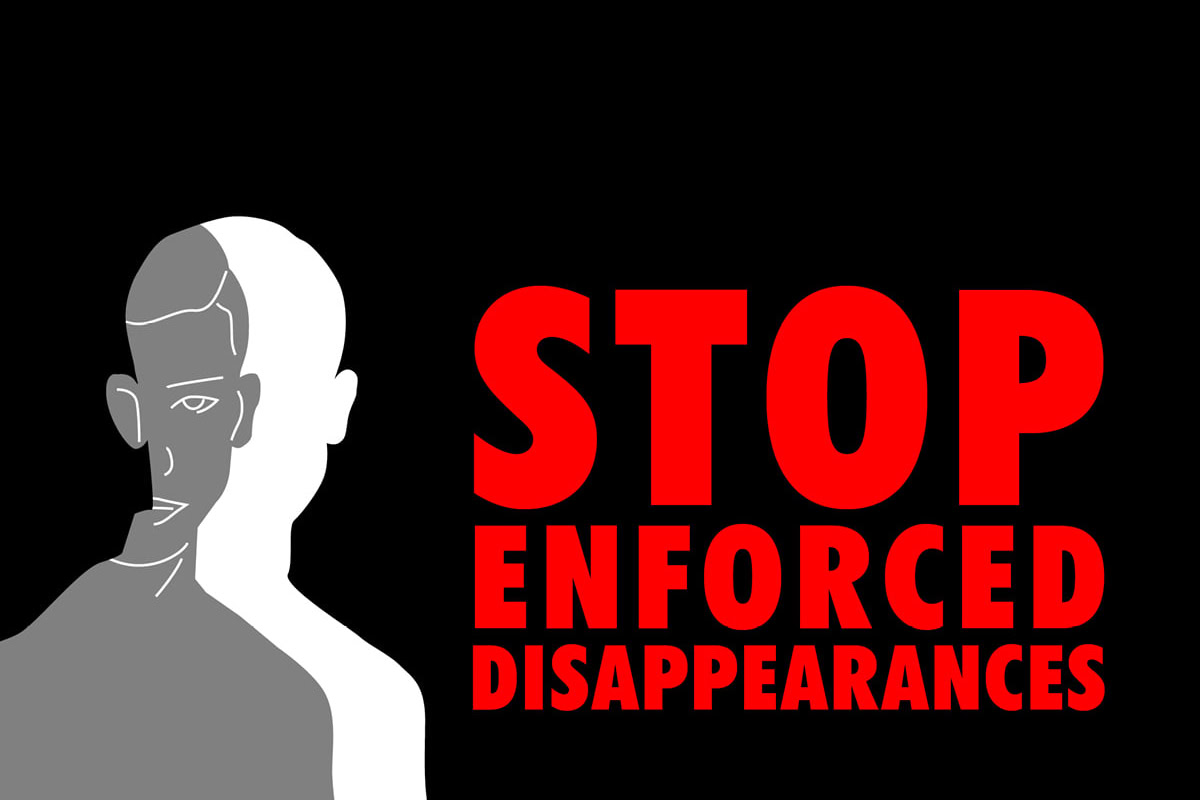Pakistani security forces have reportedly forcibly disappeared 22 more individuals in Balochistan, raising the total number of enforced disappearances this month to 56.
In the district of Noshki, nine individuals were detained during raids carried out by Pakistani forces in the Taraiz and Badal Karez areas on October 7 and 8.
The individuals, identified as Master Fareed Ahmed, Abdul Malik, Mumtaz Baloch, Iqbal Baloch, Habib Baloch, Sharif Jan, Shah Saleem, Zahoor Jan, and Asfand Baloch, were reportedly taken to an undisclosed location.
Meanwhile, in Dera Bugti, 12 more Baloch individuals were forcibly disappeared during raids by Pakistani forces on October 19. The Baloch Yakjehti Committee (BYC) confirmed these disappearances, raising alarm over the escalating number of enforced disappearances in the region.
“Their families have no knowledge of their whereabouts and fear for their safety,” the BYC said in a statement, naming the disappeared as Dr. Wazir Bugti, SHO Tariq Bugti, Raees Bugti, Murtaza Bugti, Qasim Bugti, Barkat Bugti, Zahid Bugti, Parho Bugti, Fazal Hussain Bugti, Fazal Bugti, Juma Bugti, and Qurban Bugti.
The BYC called on the international community and human rights organizations to take immediate action, urging: “We must resist to put an end to this brutal practice.”
Additionally, a young man named Abdul Malik, son of Muhammad Yousuf, was reportedly forcibly disappeared on October 11 in Kech district’s Turbat by personnel from the Counter-Terrorism Department (CTD) and Frontier Corps (FC).
Prior to these incidents, 39 Baloch men had already been forcibly disappeared in October across Balochistan, Karachi, and parts of Punjab. Only five have been released to date, bringing the total number of missing individuals this month to 56.
UN Human Rights Committee Raises Concerns
The surge in enforced disappearances comes at a time when the United Nations Human Rights Committee has raised concerns over “state violence” in Balochistan during its ongoing review of Pakistan’s human rights record. The committee, which oversees the implementation of the International Covenant on Civil and Political Rights (ICCPR), addressed the issue in its 142nd session in Geneva.
The committee’s review highlighted serious concerns regarding enforced disappearances in Balochistan. Hélène Tigroudja, a legal expert and member of the committee, noted that cases of enforced disappearances have sharply risen since Pakistan’s last review in 2017. Citing data from the UN Working Group on Enforced or Involuntary Disappearances, she said that over 7,000 cases had been reported in Pakistan between 2004 and 2024.
Tigroudja emphasized that political activists, journalists, students, and human rights defenders—particularly from Balochistan—are disproportionately targeted.
During the session, Tigroudja criticized the Pakistani government for failing to implement meaningful reforms and called for independent investigations into all cases of enforced disappearances. She criticized the existing Commission of Inquiry on Enforced Disappearances for its lack of independence and effectiveness, citing concerns raised by Pakistan’s own Supreme Court regarding the commission’s transparency.
Tigroudja urged Pakistani officials to address the issue with greater urgency and to provide justice and compensation to the families of victims.

